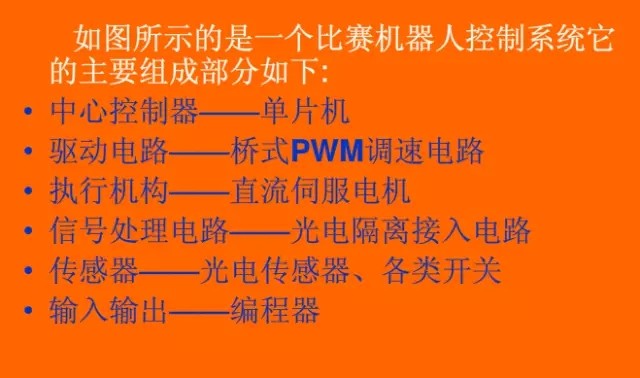Twenty years ago, the supercomputer "dark blue" defeated chess master Gary Kasparov and now Go world champion Li Shishi conceded defeat in the competition with Google AlphaGO. We witnessed Artificial Intelligence (AI). From childhood onwards, the birth of AlphaGo also triggered a "big earthquake" in the world of chess and technology, and the "last bastion" of human intelligence collapsed. We seem to have been unable to stop artificial intelligence from moving beyond humanity. As a milestone in the development of artificial intelligence, this "human-computer war" formally declares that the information society has achieved a qualitative leap from "Internet +" to "artificial intelligence +," and it also indicates that the information technology is the representative of "old." IT (Information Technology) has been ruthlessly drove off the stage of history with "Intelligent Technology" led by artificial intelligence.
In 2016, it coincided with the 60th anniversary of the birth of artificial intelligence. In recent years, from the "Robot Revolution" mentioned by Chairman Xi Jinping, China's version of Industry 4.0, to the "many innovations" of Premier Li Keqiang; from the State Council in the "Guidelines on Actively Promoting "Internet Plus" Action" to push artificial intelligence on At the national strategic level, the "Technology Innovation-2030 Project" of the "Thirteenth Five-Year Plan" listed intelligent manufacturing and robots as one of the major projects. Artificial intelligence has set off a new wave of technological innovation in China. Everything indicates that artificial intelligence is a new enthusiasm for the industrial revolution. The era of the best "artificial intelligence +" in human history has arrived.
WHY: AI may catalyze the next industrial revolution
The leap of development in society must go the way: The technological revolution drives the industrial revolution
Experience shows that every major social leap in history has been accompanied by a technological revolution. The scientific and technological revolution includes two categories: scientific revolution and technological revolution. The scientific revolution is the premise of the technological revolution, but the scientific revolution will not necessarily bring about industrial changes. The technological revolution is the only way that must be passed between the scientific revolution and the industrial revolution.
Looking at the five major scientific and technological revolutions in the modern history of mankind: The result of the first scientific revolution was the establishment of a complete modern scientific system. Since it has not been applied practically from the theoretical to the technical level, the level of social productivity has not achieved a qualitative leap. . Only after the outbreak of the first industrial revolution represented by the steam engine (which may also be called the first technological revolution) did human society's productivity and development level begin its rapid and steady improvement. The human society has also entered the industrial era relying on mechanical energy from the agricultural era of relying on bioenergy. The third technological revolution in the second half of the 20th century was the practical application of the theory of the second scientific revolution in the first half of the 20th century. The third technological revolution has driven the rapid development of emerging industries represented by the tertiary industry, and promoted humanity into a new era of knowledge, information, and networking. This has greatly improved the convenience of cross-border flows of capital and technology. Sex. Since then, human society has gradually entered the information society from the industrial society. Western developed countries have gradually entered the era of post-industrialization, while their traditional departments are shifting to emerging and developing countries that have gradually entered the market. Whether it is industrial informationization or information industrialization, the third technological revolution has brought about a rapid increase in the labor productivity of the starting country.

From the point of view of labor productivity, the only significant increase in labor productivity in the long history is the result of technological progress. After the widespread application of the first industrial revolution represented by the steam engine, labor productivity has risen rapidly; during the third technological revolution, it has risen faster. Before the Industrial Revolution swept the countries, it was difficult to observe a long-term increase in per capita output or labor productivity. As shown in Figure 2, before the Industrial Revolution, the per capita GDP growth in the UK was very slow, and after the Industrial Revolution, this Indicators rise rapidly. As shown in Figure 3, according to the social development index measured by Ian Morris, the industrial revolution is also an important factor for the Western countries to take the lead in modernization and lead the East in the long run. The industrial revolution brought about changes in the pattern of production, transportation, international trade, and even social strata and global power. According to Gregory Clark, a professor of history, “In fact, only one thing happened in human history. That is, the industrial revolution that began around the year 1800. Only the world before the industrial revolution and the world after the industrial revolution, other historical details of humanity are interesting, but Not critical."

Artificial intelligence or will lead the next round of industrial change
Can the revolution led by artificial intelligence scratch the industry's hurricane? The changes brought about by artificial intelligence to human society do not seem to be like the technological revolutions of the past, but merely to extend the physical and mental strength of human beings. Instead, they have entered the era of common evolution of humans and machines.
